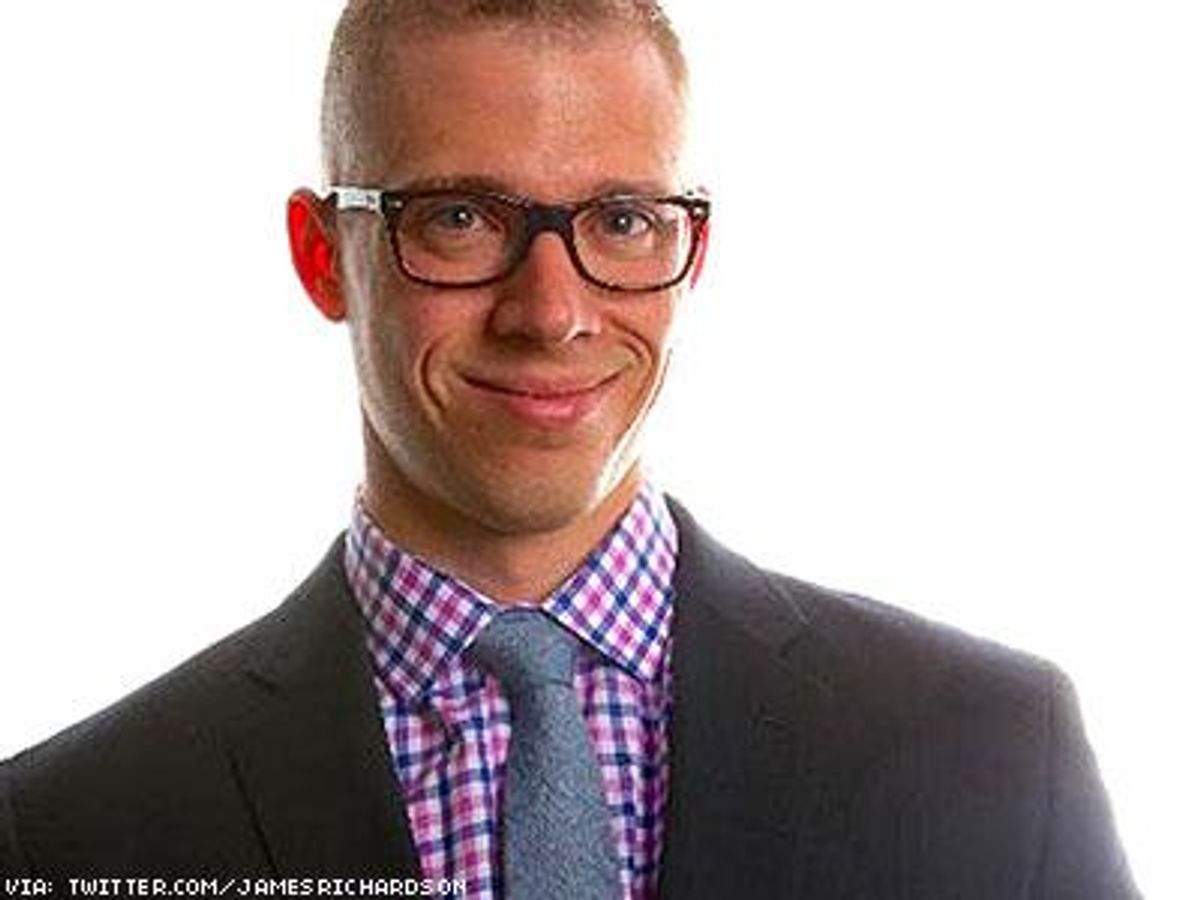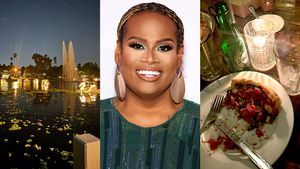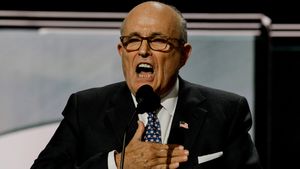Before building a career as a conservative communications strategist, James Richardson served as the senior spokesman and adviser for Republican governors Haley Barbour, Jon Huntsman, and the Republican National Committee. Over the past two years, he has frequently taken a public stance encouraging the GOP to welcome LGBT people and support same-sex marriage, but in an op-ed for Washington Post, he admits that he never acknowledged his own sexuality in those writings.
"For my admission here, I will alienate friends whose faiths regard my sexuality as culturally corrosive," Richardson wrote in Thursday's Washington Post. "I'll suffer the snickering of those across the aisle whose politics regard my own as personally injurious. And conservative clients may regard me as a liability. After all, the tide is not as unidirectional as people say."
Richardson, who now lives in Georgia with his partner, extolls the economic and conservative virtues of allowing same-sex couples to legally marry, pointing to the sizable fiscal, commercial, and employment boon marriage equality would bring to his home state.
"It's not always easy to love Georgia, or love in it," Richardson writes. "Our state constitution explicitly forbids same-sex unions, and the local economy remains defiantly sluggish. Yet in spite of its blemishes, my would-be groom and I are deeply committed to our community, one whose values of faith and family we share."
After revealing that he and his partner are, by Norman Rockwell standards, "boring" -- cheering on the University of Georgia Bulldogs and sitting quietly in the pews of their evangelical church -- Richardson explains that "even if we failed, or refused on principle, to cross straight America's bourgeois threshold for normalcy, gay people deserve the same legal and moral considerations -- and rights -- enjoyed by all others."
"They are Americans whose rights were granted by God and the grit of their forbearers, yet they are forced to defend their love, and the various planes on which it may be judged (constitutional, cultural and economic), to distressing and revolting ends," he continues.
Aside from the proven fiscal benefit legal marriage equality could provide to struggling states, Richardson concludes that ultimately, the right to marry is "about individual Americans and the dignity their unions are necessarily due from their government."
He calls the discrimination same-sex couples face in marriage, where committed partners are legally confined to "cohabitation as a consequence of law," "unjust" and "uniquely painful."
Finally, Richardson outright rejects many of his former colleagues' doomsday claims about the damaging impact of same-sex couples entering the institution of marriage.
"We wish to participate in earnest, to strengthen the institution that our straight peers are abandoning," he writes. "Gay couples don't want to rock the marriage boat -- they only want a ticket for two to ride."



















































































